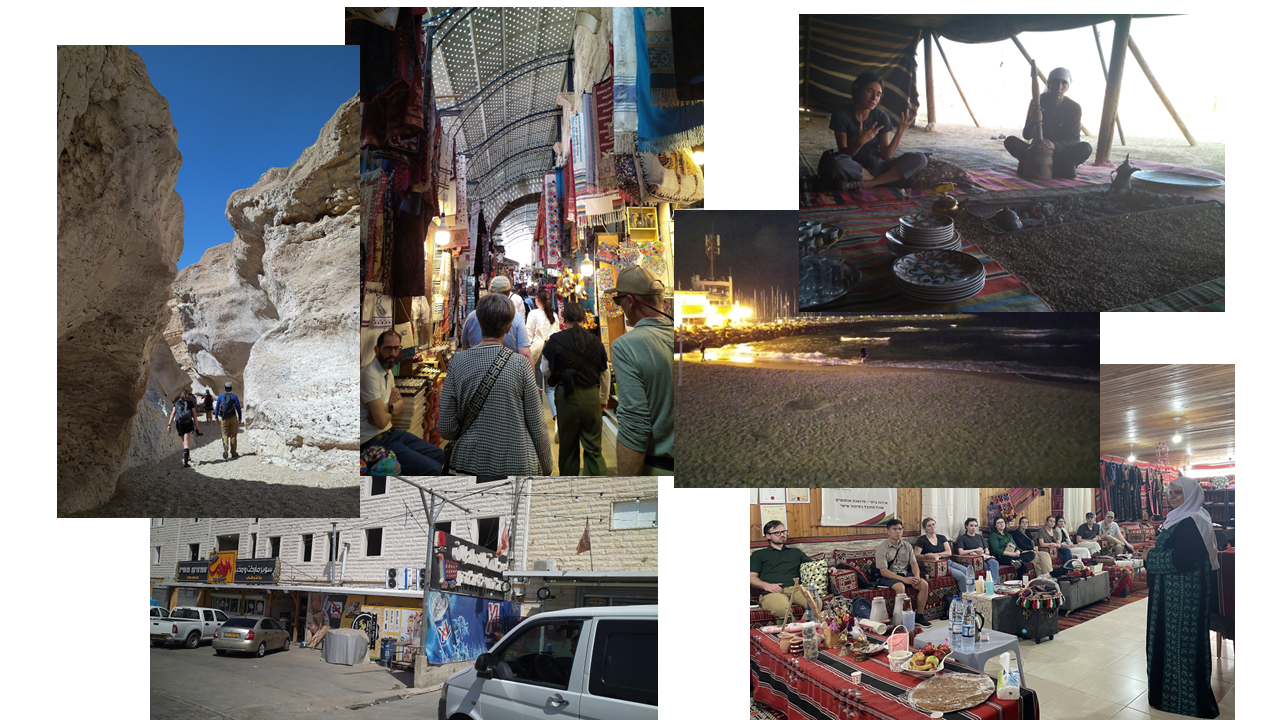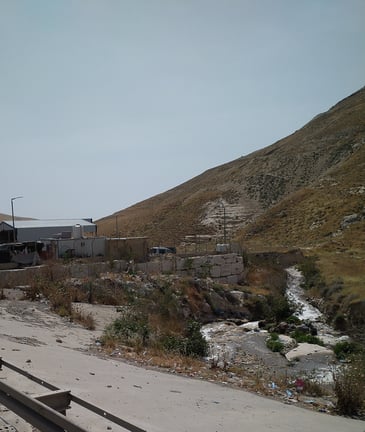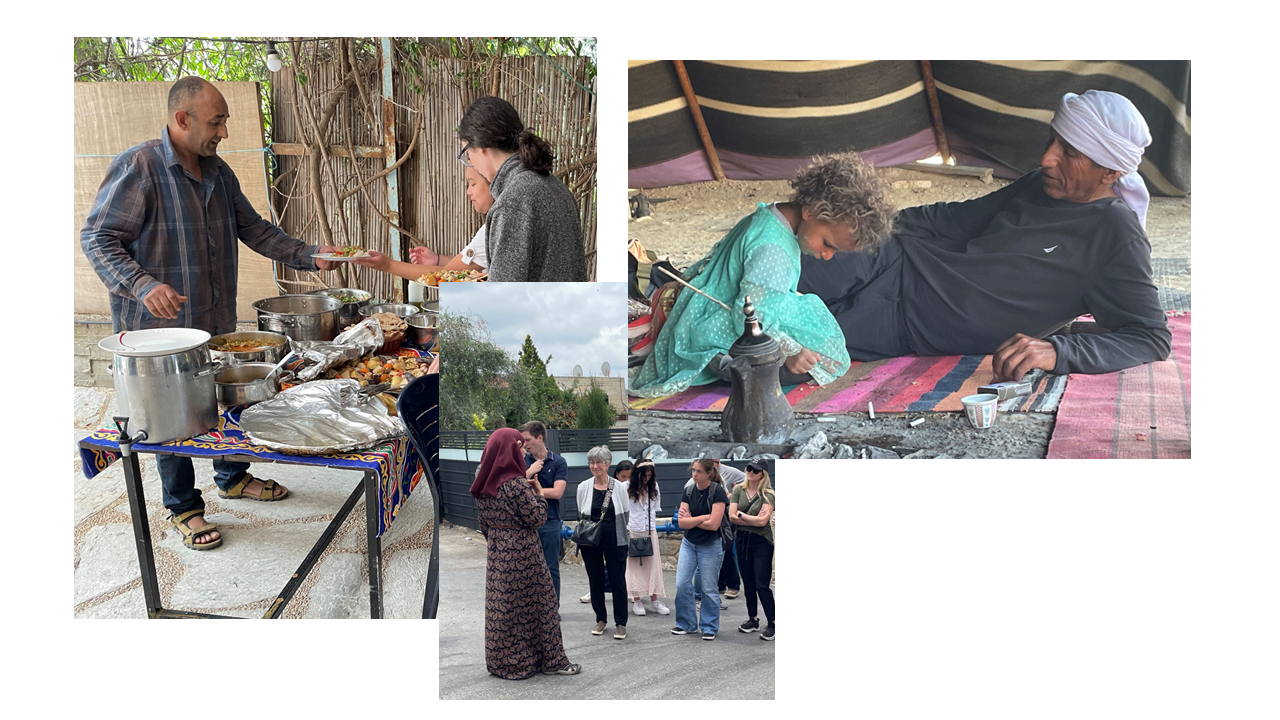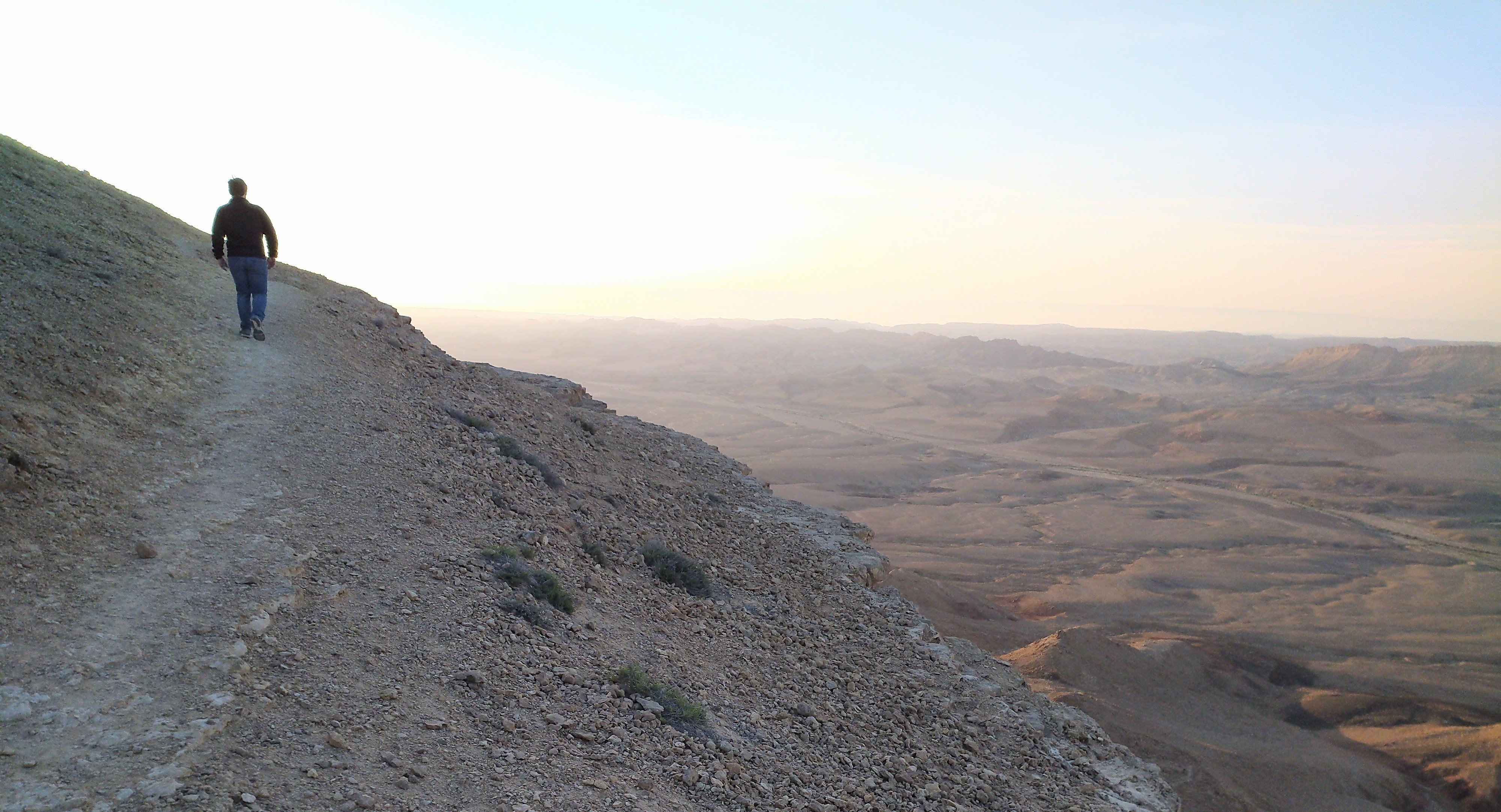Day Fourteen – The Treachery of Clarity
By: Simon Lee '25
This article is part of a series of reflections prepared by students enrolled in the Texas A&M School of Law 2023 Global Field Studies Program: Israel. Click here to visit the entire series.
…and that’s it.
And now it’s a little weird. The trip took two weeks, but our being in Israel didn’t hit us until right after it ended---when we awoke in our beds back in Dallas-Fort Worth after making it home and passing out utterly exhausted. At least one student called the trip a “fever dream.” It seems the surrealism never did wear off.
But surreal or not, we were there. We strolled the sandy beaches of Tel Aviv-Yafo. We perused the bustling streets of Rahat. We spoke to Bedouins over lunch in their wooden and tent homes. We hiked the dried and cracked riverbeds of Maktesh Ramon. We haggled with crafty vendors in Jerusalem’s Old City shuk. We did so much. We learned---no---we gained so much.

When we first arrived in Israel late Sunday evening, we knew next to nothing about the policies and practices of water management and wastewater treatment in the nation. We certainly had no idea of how deep the tensions in Israel ran. We learned that water management here---as formidable, essential, and systematic as it is---fails to serve many who are rightfully entitled to it, due to contradictory policies and insufficient coordination between governing entities. Add to these regulatory issues a deep-seated animosity between ethnic groups. As our Jerusalem guide, Jared, put it, motivations to malign and neglect the other can come from the most visceral and most sacred narratives of what it means to be an Arab or Jew.
It took a few days for us to realize the depth of these problems. We were shown that the close interaction of Mekorot (Israel’s national water company) and the Israeli government made Israel’s water management system essentially a single and powerful entity. This entity controls who gets desalinated water from the sea to drink and who gets treated wastewater to grow crops at the metaphorical turn of a tap. At the same time the government and its domestic policies neglect---all but intentionally---many in the nation and those in Gaza and the West Bank. These people lack sustainable access to drinkable or irrigatable water and any means to treat their wastewater. This situation may have untenable externalities in that untreated wastewater can contaminate existing freshwater aquifers to the detriment of the entire nation. With few exceptions, current government regulations force these people to make a difficult choice when they seek water to drink or grow food: either risk sanctions if they skirt the rules, take on unreasonable burdens if they adhere to them, or, for the nomadic Bedouins, force them to give up their way of life and live in sedentary and substandard “orchestrated settlements” that are connected to the nation’s water distribution system.
It would seem these neglectful government policies are motivated by the politics surrounding ethnic tensions in the nation. Those not in power are being increasingly shut out and shunned by the ruling parties in the government---a fact not lost on the Bedouins of the Negev, the Palestinians in the West Bank, and those living in Gaza. When we spoke to the Bedouins and Palestinians about these issues, we heard thinly-veiled consternation and anger behind their every word.


We met several of the righteous few fighting to fix these problems. Dr. Clive Lipchin, for example, is creating a decentralized wastewater treatment system that satisfies nebulous government standards governing the purity of crop-irrigation water. He ultimately wants to give these systems to the Bedouins in the Negev and Palestinians in Gaza and the West Bank so they can treat their wastewater and irrigate crops. He hopes to bypass restrictive governmental policies and ensure people can treat their wastewater and have water to grow their own food. Others---like Mohammed, Salman, Musa, Yasmin, and the Arava Institute---bring together people from both sides of the region’s deep conflicts to foster understanding and, ultimately, tolerance. They hope their efforts will help people of the nation peacefully coexist.

Their efforts are essential to help solve Israel’s greater water distribution issues and the deep-seated conflicts of the region. In fact, neither problem can be solved without achieving the other. Peace cannot be had when water---and indeed access to treated wastewater in the arid desert---is arbitrarily restricted by one party from another. At the same time, this water will not be freely given without peace between parties. Many have fought for these lofty goals in the past; some, such as the venerated Yitzhak Rabin, gave their lives for them. Many more will need to join the fight if these goals are to be realized.
We are now part of the fight to solve these problems. We know that success in this fight is necessary for peace and life for all in Israel and beyond. And though fully grasping the breadth of these issues, let alone solving them, is beyond our group, we join a noble company who have fought and currently are fighting to solve these problems. Many have come before us, many are there alongside us, and many will come after. We know that we may not see the success we fight for in our lifetimes. But deep down, we know our efforts are just as necessary. As Mohammed put it, we all work for “pieces of peace.”
We leave Israel enlightened and changed. We take what we learned and experienced back to the States and continue our work. There is no doubt in our minds that what we do shall benefit not only Israel and Texas, but also other water-stricken and conflict-ridden places across the globe. Because of our time in Israel, we will shape the world of tomorrow.
شكرا , Israel. Until next time. תודה רבה!

Learn more about Texas A&M University School of Law's Global Law and Policy Program, Aggie Dispute Resolution Program, and Energy, Environmental, and Natural Resource Systems Law Program
